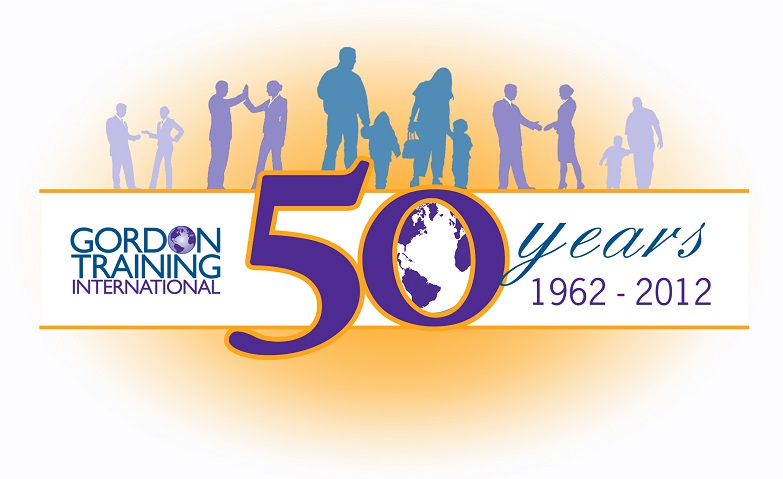P.E.T. Practice with the <5 Set
Ever wonder how Parent Effectiveness Training can work with the really little ones?
I came to P.E.T. somewhat late in the game, when my kids were 13, 11 & 8. This summer, though, I had a decent amount of practice with my young nieces and nephews, and even a cousin! Here is a basic primer and then some snapshots of what went down. (Note: I change names for every child in my blog, including my own kids.)
Active Listening: The art of listening closely to your child's words, gestures, expressions and tone of voice to hear her whole message and then reflecting back with empathy and acceptance both the content and the underlying feelings
Confrontive I-Message: A sharing of your own experience of a child's action that, at its strongest, includes 1)a non-judgmental description of his behavior 2)your feelings about it and 3)the effect his behavior has on you
Values Collision: A conflict with your child over a belief she holds that you feel will not serve her well in life but that does not, in fact, affect your ability to meet your own needs
4 year old nephew would rather pass on the bathroom
I took Charles, along with Jake and Claudia, to visit some of my relatives. All went well and the kids were watching Kung Fu Panda while I was getting ready to leave. When I asked Charles to hit the bathroom before our ride back home, he declined by scooting up closer to the movie.
I Active Listened first: "Hey guy, I see you'd really rather watch the video than go to the bathroom. It's a pain to have to go!"
I then gave a Confrontive I-Message: "However, I'm really worried because I know you are pretty tired. If we get caught in traffic and you fall asleep, you may have an accident and it's not even my car!" (I had borrowed a car from his aunt, my other sister-in-law.)
Charles sprang right up to go!
21 month old niece wanted to leave WITH Mommy
I was transferring her car seat, getting ready to take Emma out to lunch with my two boys. Suddenly, it became clear that she thought my sister-in-law was going too! She kept motioning and saying, "Mommy go, Mommy go." My sister in law told her a couple of times, "No, Mommy is staying home." Little Emma was getting upset and tearful.
I stooped down to AL her: "It's really hard because you were thinking that Mommy was going and now she is not. That's a big surprise!"
And as we learn to do with babies and toddlers, after the Active Listen we can offer a Solution or a distraction: "We are going to buy Claudia a birthday present, have lunch and come back to see Mommy for your nap. You will see Mommy real soon!"
Emma was fine once she knew I got how bummed and taken off guard she had been!
4 year old cousin littered
At Burke Lake Park in Virginia, while his mother and twin brother rode the carousel, Emmett finished his ice cream cone and threw his two napkins down on the grass. He pointed them out to me.
I responded spontaneously, "Oh, I don't like littering! Would you be willing to pick them up and throw them away?"
"No!" came his response.
I reined in my judgment by focusing instead on the P.E.T. skills for addressing Values Collisions. (Engaging in a power struggle was off the table.)
Confront and Active Listen
Modify Self
Problem-Solve
Model
Consult
There was no time to really engage in Confrontation and Active Listening, or a Method III Problem-Solve. Any Consultation on littering could come later (and better from his parents than me!). I decided that it would simply be best to model for Emmett in that moment. According to Dr. Thomas Gordon, that's the "best way, perhaps the only way" to teach values anyway (page 305, Parent Effectiveness Training: The Proven Program for Raising Responsible Children).
I cheerfully told this little man, "Well, I see you don't want to right now so I'm going to pick them up because I don't want to litter this beautiful park!" He watched as I disposed of the trash and came back with a smile.
4 year old cousin adored the train ride
My aunt and I took her twin boys on the kiddie train through a cool and welcoming grove of trees - twice! Emmett was really into it both times and was sad to leave.
"I want to come back tomorrow!" he started to insist.
His mother gently reasoned, "Oh, but we can't, we are going home to New York tomorrow!"
This did not sit well. "But I want to! I want to!"
Again, my aunt explained, "Emmett, we can't. We are leaving in the morning."
I decided to Active Listen him and then tap into his imagination: "You so wish you could come back, you really love this train! Oh, it would be so fun to live near this train!"
He relished that thought, "Yeah, in my back yard!"
I went with it. "Wow, that would be really special!"
He shared, "Yeah, and I have toy trains."
I imagined the scene: "Oh, so you could play with YOUR trains while you watched the big choo choo train -- how fun would that be!"
And then there was the energy shift: "Hey, did you see me jump right there?" after he hopped off the curb.
4 year old cousin pushed table into my stomach
Towards the end of lunch, Emmett (yes, it's the same Emmett, bless his soul) discovered that the table at our booth was not stationary and pushed it towards me until it touched my body. He eyed me to see what I would do.
I remembered with intention that he was just doing something FOR himself, and not doing something TO me. It's one of the most helpful tenets of Dr. Gordon's approach:
“Principle 1: Like adults, children have basic needs that are important to them, and they continually strive to meet their needs by doing something.
Principle 2: Children don’t misbehave. Their behaviors are simply actions they have chosen to meet these important needs.”
I decided to give Emmett a Confrontive I-Message, "I don't like that because the table is too close to me and I feel uncomfortable." I slowly moved it back but he pushed it again towards me, ever watchful.
I endeavored to keep my window open for this little boy with the following thoughts:
- he may be tired
- he is bored and just wanting some fun
- he is acting out of curiosity -- How will this person whom I see only once a year react?
- Is this a cue and a clue that there is a deeper unmet need, some upset with me from earlier in the day? I honestly didn't think so.
Yet I was uncomfortable so I owed it to myself to reassert, "Oh, I don't like this at all. It's too tight." I said this without acrimony as I gently returned the table to its original position.
And then I gave him an out, showing him what he COULD do instead. "Come on, you know what we CAN do? We can go outside while Mommy finishes her meal!"
4 year old nephew missed Mommy
When I arrived on the busy boardwalk by the boathouse, Mark was arching back in his stroller, crying for his mother while his nanny and grandmother tried in vain to calm him down.
I put my hand on Mark's shoulder to ground him and ALed: "You really want Mommy! You miss her and wish she were here!" He continued crying as his grandmother told me that he had refused to go in the canoe with his mother and she was still out on the lake. I went on, "Oh, and it's so hard because maybe now you wish you HAD gone with Mommy and she is taking so long!"
Mommy out on the water -- little does she know what's going on
Mark's wailing persisted and, unfortunately, I am too unfamiliar a figure to really hold or offer him comfort.
The nanny took him for a walk; maybe the change of scenery or rocking of the stroller would soothe him. She told me later, however, that she had resorted finally to threatening him, "Enough! You're going to vomit. If you don't stop now, I won't take you to see Mommy." She wanted to know if there was something else she could have done.
After I Active Listened HER (so she would feel accepted, not judged, and thus more receptive), I raised the possibility that, upon hearing her words, Mark had become very scared. Instead of feeling supported and learning healthy emotional self-regulation, he had probably stopped crying simply out of fear.
I suggested that next time she could hug him or, if he kicked or hit her as he sometimes did, just continue to AL: "Oh, you feel sooo sad without Mommy here. Well, I'll stay right by your side until you can see her, I don't want you to feel alone when you are this upset!"
This show of empathy would have helped Mark not to feel ashamed of his feelings but, rather, unconditionally accepted (despite his "difficult" behavior). This sense of being safe and connected while in the throes of a scary emotional event would, according to Dr. Laura Markham in her article Empathy: Foundation of Emotional Health, help him grow in an important way:
Empathy helps the child to feel understood, less alone with her pain and suffering. Empathy heals. And the experience of empathy teaches the little one about the deepest ways that humans connect, providing her with a launching pad for every future relationship . . . [P]arenting with empathy is a double gift to your child: In addition to your empathy helping him learn to manage his emotions, experiencing your empathy will also help him to develop empathy for others. [emphasis added]
It's hard, I acknowledged, when the child has already been crying for over 15 minutes and you are getting the stink-eye from everyone around!
But if we can observe our feelings of embarrassment, offer ourselves a quick compassionate squeeze (Man, this is really, really hard!), and resolve to meet the child where he is and help him move through his upset, then we are doing him a great service. Mark's nanny nodded, understanding.
Active Listening and the other P.E.T. skills are, if we think about it, truly transformational stuff. And they definitely come in handy with the precious little people in our lives.
Do you have any suggestions for how I could have P.E.T.ed better in these scenarios? Please share! The young ones are not my forte. Or tell us about a success or flop you had with a little child and what you learned from it!
Credits: Father & daughter at http://attachmentinfo.wordpress.com/category/reflective-parenting/; Burke Lake train at http://themeanestmomma.com/play-space-review/biking-burke-lake-park/






